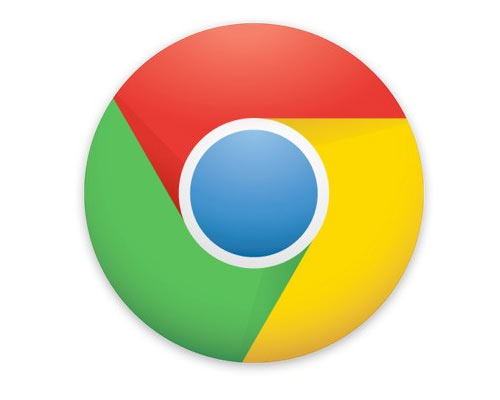Google Chrome Will Enable Desktop HTML5 Apps Too
Chrome 22 introduces Packaged Apps which allows developers to create HTML5 apps that can be installed in the system like any other software.

A recent developer build of Google's Chrome web browser enabled a technology called Chrome Packaged Apps by default. Much like what's offered in the Mozilla Marketplace, "packaged" apps obtained through Chrome can be installed directly into Windows like any other standalone program, storing files on the local disk and placing a shortcut on the desktop.
"Packaged apps will no longer be tied to the browser," said Chrome Engineering Manager Erik Kay in a video about Chrome packaged apps. "Rather than running as a tab inside of Chrome, packaged apps can be launched from outside of Chrome, have their own top-level windows, and generally behave like first-class apps on the operating system... The user shouldn't be aware your app was built with Web technologies."
As indicated, these apps will load from the local disk and work offline by default. But they're built with the same programming techniques used in standard web apps such as HTML5 for content, CSS3 for formatting and effects, and JavaScript for app execution. As with any other program, these apps can be uninstalled via Control Panel/Programs/Programs and Features in Windows.
"When a user opens a packaged app, their focus is specifically on the tasks relating to the app. Packaged apps have no traditional chrome features: the omnibox (address bar), tab strip, and other browser interface elements no longer appear. Like native apps, they don’t live within the browser. When launched, packaged apps can open in windows that look like this (and you can style your windows in all different ways)," Kay explains.
Packaged apps deliver an experience as capable as a native app, but as safe as a web page, he adds.
With Packaged Apps, the team is also adding a batch of new APIs so that developers can take advantage of system-level services and devices like TCP/IP, USB and Bluetooth. There are also new shared-data APIs to help developers inter-operate with other applications on the system when dealing with photos, music, contacts, identity and other data that non-Web apps on a computer system might also use.
"With access to Chrome APIs and services not available to traditional web apps, you can build powerful apps that interact with network and hardware devices, as well as, media apps," he said. A short list includes shells (VMWare, Citrix, SSH, RDP or VNC clients), music/video streaming and photo/video/music editing.
Get instant access to breaking news, the hottest reviews, great deals and helpful tips.
Packaged Apps are merely modified web apps, he said. Developers use the same code, frameworks, and tools of the web platform to write their apps. Some browser features have been removed while other web APIs have been disabled or changed to improve security and programming practices.
For more information about Packaged Apps, head here.
Kevin started taking PCs apart in the 90s when Quake was on the way and his PC lacked the required components. Since then, he’s loved all things PC-related and cool gadgets ranging from the New Nintendo 3DS to Android tablets. He is currently a contributor at Digital Trends, writing about everything from computers to how-to content on Windows and Macs to reviews of the latest laptops from HP, Dell, Lenovo, and more.
-
math1337 The advantage is probably mostly in cross platform independence. Given the option, I'd rather work in C# &WPF than HTM5 javascript.Reply -
ttcboy If the developer want to make the program that is meant for the desktop, why would they bother to write in HTML in the first place ?Reply -
aftcomet Can't wait for HTML5 to come in full force. Getting absolutely sick and disgusted with Flash which crashes Firefox every couple of hours and completely drains my mobile device's battery.Reply -
IndignantSkeptic If programmers write their programs in HTML5 then does that effectively make their programs open source?Reply -
digitalvampire Fantastic!! All those slower, web-based versions of our already significantly faster desktop applications are coming back to the desktop and bringing the slower technology with them. (wait, what?) I really can't understand the trend of refusing to learn an actual programming language. I honestly would prefer the fat, slow, pseudo-cross platform and legally compromising Java over this.Reply
math1337The advantage is probably mostly in cross platform independence. Given the option, I'd rather work in C# &WPF than HTM5 javascript.I hope you are not insinuating that C# and WPF are cross-platform, because they are, well, not even close.
IndignantSkepticIf programmers write their programs in HTML5 then does that effectively make their programs open source?It would make their source "code" directly readable, but it wouldn't necessarily make it free or open source. Just because code is able to be openly examined doesn't make it open source. (http://en.wikipedia.org/wiki/Open-source_software#Open_source_vs._source-available) -
IndignantSkeptic digitalvampireIt would make their source "code" directly readable, but it wouldn't necessarily make it free or open source. Just because code is able to be openly examined doesn't make it open source. (http://en.wikipedia.org/wiki/Open-source_software#Open_source_vs._source-available)Reply
Ok, but coding in HTML5 basically makes it very easy for everyone to commit industrial espionage against you because they can easily see and steal/copy all of your exact source code. Correct? That's what I'm concerned about. Everyone stealing everyone else's intellectual property would be enormously beneficial to humanity in the short term but then horribly devastating to humanity in the long term because then nobody would want to pay to do research & development anymore if everyone else can just steal and use their findings for free because then the group that payed for the R&D would be putting themselves into millions or even billions of dollars of debt that they could never get out of.
